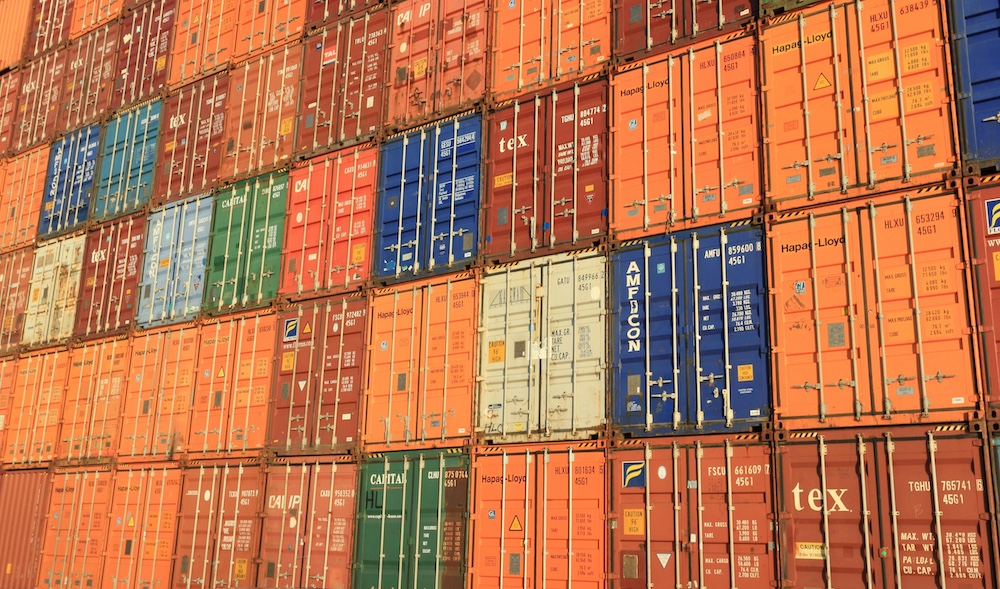The business of making predictions is fraught with risk, and although we do our best at Toronto Realty Group to keep a pulse on the market and always have a sense of where we are heading, there’s always the unexpected.
So far this year has been more robust then I had expected and buyers were out earlier than usual to get through busy open houses and compete on offer nights. The stage seemed set for a very busy Q1, Q2, and our predictions for modest price appreciation throughout the core of Toronto seemed all but inevitable.
Looking for more to-the-point real estate insights? Check out our podcast, The Last Honest Realtor right here or anywhere you get your podcasts!
But US President, Donald Trump Had Other Plans
But this week gave everyone pause after Donald Trump announced 25% tariffs on all Canadian goods entering the United States, and Canada in turn responded with their own counter tariffs. This crisis was averted (or delayed) in the end, and there are many that speculate that it was mere posturing by politicians.. but as we now wait to see what comes next from this US administration; the new question on everybody’s mind at Toronto Realty Group:
What would tariffs or a trade war actually do to the Toronto Real Estate Market?
There is the obvious answer here; the one you’ve likely heard coming from every media outlet this past week, and it’s not good.
Tariffs will raise the price of Canadian-made goods, making them far less competitive in the U.S. marketplace. As we are essentially a nation of exporters, many involved in complex supply chains, it seems likely that many industries will incur a slowdown, and Canada will enter into a recession within months. With increased unemployment and less consumer confidence, it would almost certainly have a negative effect on housing values across the country.
The real estate market is full of nuance, if you’ve got more questions about Toronto real estate, here are a few more posts you might find interesting:
- Have I Got a Deal For You? How to Avoid Real Estate Scams in Toronto
- How Often Does the Real Estate Market Change?
- Are Interest Rates Actually Important When Buying a House?
In addition, counter-tariffs on imported goods coming into Canada would also likely add to the cost of many construction materials, which would push any new housing projects past their potential breakeven point and slow industry growth even further.
And that’s basically the gist you’ll hear across the board this week:
tariffs = economic slowdown = higher unemployment = weakened housing market.
But if I learnt anything from the last major crisis we lived through, things don’t always work out as expected. I’m referring to Covid of course, which was only five years ago by the way…
Sidenote; I’m somewhat dumbfounded that we find ourselves in yet another potential global crisis so soon after the last global crisis. My personal life experience, or perhaps we should call it ignorance in retrospect, had me under the impression that these things were to happen more like once in a lifetime than twice a decade.
But I digress… In March of 2020 as we watched the world shut down from the spreading virus, it again seemed inevitable that we would see economic slowdown=higher unemployment=weakened housing market. And the Toronto market basically went on hold as we delisted every property almost overnight… but then something else happened. Within a matter of weeks, the federal government stepped in with a new fiscal policy to prop up industries and employees throughout their time of hardship, and the Bank of Canada slashed interest rates to almost zero!
From that point on, the exact opposite of what we had all been bracing for happened, and the market went to the moon. It was one of the busiest years this industry had seen in decades as buyers still needed homes (some more than ever) and rock bottom interest rates encouraged buyers to take on debt.
This was of course not the objective of the rate cuts, and whether this was the right or wrong thing for both the central bank and consumers to do is a topic for another blog… but could something similar happen again now?
Planning to sell your home this year? Read these posts next:
- Should I Price My Home Below Market Value
- What’s Negotiable When Selling Your Home in Toronto
- Do You Need an Open House to Sell Your Home
Is There a Positive Side to a Trade War with the US?
The counter perspective on the impacts of a trade war is that we will almost certainly see lower interest rates as the central bank tries to support the economy. If covid is any indication of how this will affect mortgage applications, buyer demand would be set to increase. This alone could lead to a higher prices, but at the same time, construction costs will increase (as I mentioned previously), putting further pressure on new housing supply. Increased demand with dwindling supply is likely not going to lead to price depreciation, especially in a tight market like Toronto.
On top of that, we’d also likely see Canadians sell any US real estate holdings in a longer-term trade war and potentially reinvest back into the Canadian market. And we could even see foreign buyers take a renewed interest in our housing market as a weakening Canadian dollar makes assets look cheap to those abroad. Both impacts here further pushing up demand and likely prices too.
Maybe this sounds too optimistic to some, and truly I can’t say whether either scenario is likely to play out just yet. But I certainly have learned that nothing is inevitable in a crisis, and things don’t always go the way everyone else thinks.
Whether you’re thinking about buying or selling this year or you just have some real estate questions, we’re happy to help. Give us a call at 416.642.2260 or email admin@torontorealtygroup.com to get in touch.

Ready to Get Started?
It all starts with a conversation. Whether buying or selling, TRG can help you achieve your real estate goals. Get in touch with our team today to start the process.








